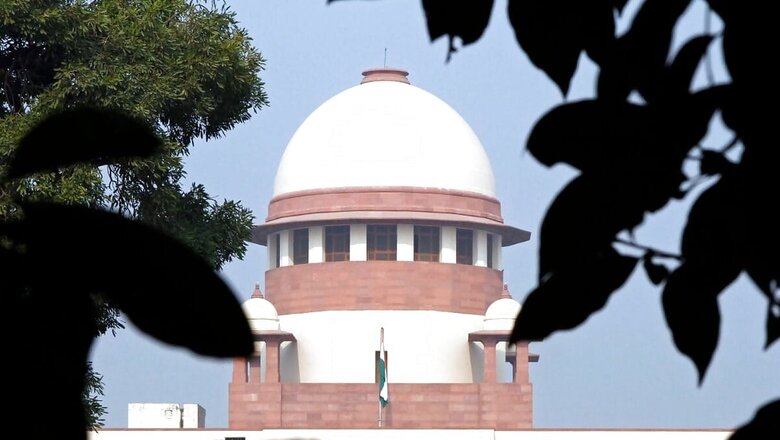
views
As he bared the most vulnerable parts of himself, I realised how my heterosexuality made many like me the ‘majority’. A majority completely oblivious to the pain, trauma, and struggle of some closest ones—an ignored ‘minority’. The fear, shame, and stigma of abuse of different kinds have been closeted for far too long. The Supreme Court hearing was a breakthrough for making gay rights and equality a dinner table conversation in most Indian households. It made many people sit up and take notice. For the first time, the debate in the courtroom was not about whether being homosexual is natural or unnatural, but rather should the community have greater civil rights. It’s a huge step forward for the LGBTQ movement. It made many individuals from the LGBTQ community come out to the world, express themselves freely, and reach out to their loved ones for acceptance and affection.
The issue was magnified on television and other mainstream media platforms. The hearing was successful to the extent of generating conversation around LGBTQ rights, an issue that has been stuck in shame and stigma and victim to social ridicule and mockery despite decriminalisation.
The Supreme Court hearing for ten days was live-streamed, available on open social media platforms, and engaged lakhs of citizens across the country. This hearing was a departure from the past in many ways. The language used in the courtroom, a certain sense of dignity and respect to the LGBTQ community from all sides, irrespective of whether they were supporting or opposing marriage equality. The laudable sense of sensitivity from the five-judge bench which was hearing this case reminds me of earlier times. About a decade ago, the community was termed a ‘minuscule minority’ or ‘unapprehended felons’ by this very court when a two-judge bench recriminalised homosexuality in 2013, overturning the judgement of the Delhi High Court. The apology took a painful five years, when in a rare move, the Supreme Court decriminalised homosexuality and overturned its own judgement in a curative petition. The judicial language, temperament, and sensitivity have indeed taken a leap.
As a student of law, I have argued that the legal ground is not fertile for seeking marriage equality for the LGBTQ community. Personal laws and the lack of a civil code make it legally impossible or extremely difficult at the very least. But in this case, the Chief Justice-led Supreme Court served to be a platform for reigniting dignified conversations around the community and its rights. The community members loudly asserted that their existence is not merely to be tolerated but it must receive social dignity and respect. Seeking marriage equality from the courts is about that greater fight for justice and acceptance. The right conversations have been propelled into society from Court No. 1.
The court’s decision is eagerly anticipated. Whether a full-fledged constitutional declaration or something short of equality-it’s a call that the court must make. Social taboos, walls of shame, and stigma, and often broken by the stroke of the pen. The court will strike—we await to know how strong the blow shall be.




















Comments
0 comment